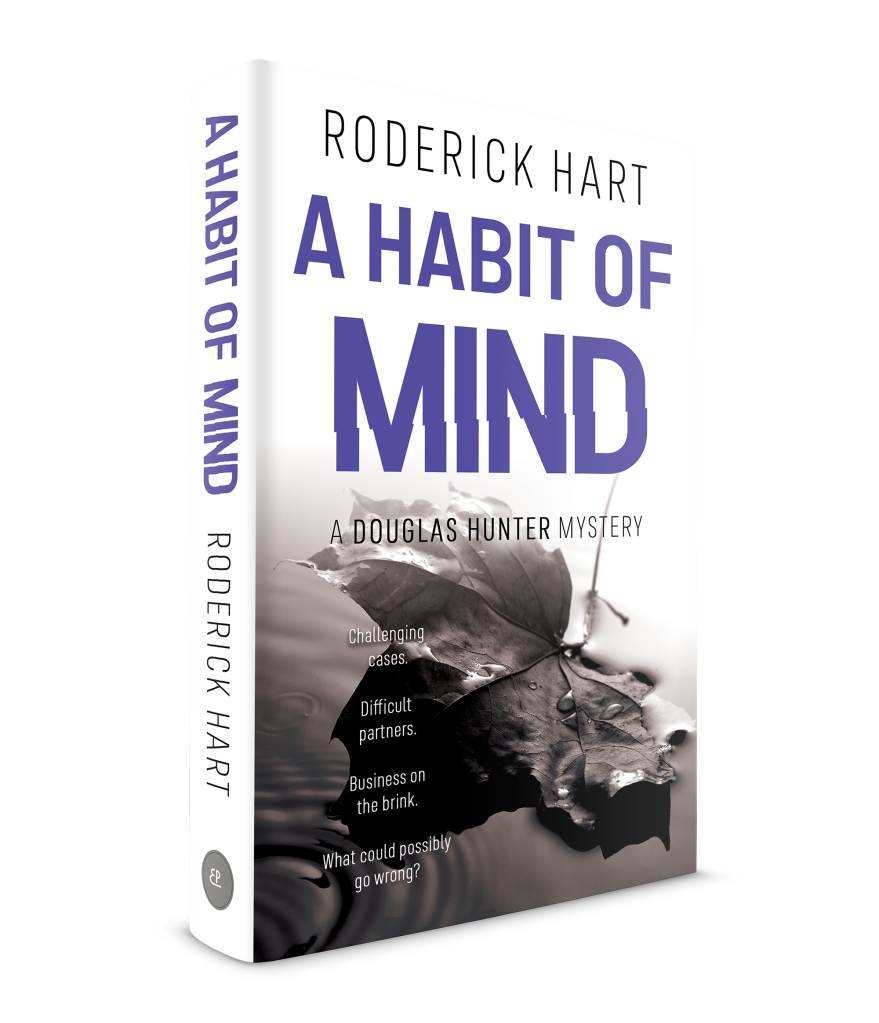Some time ago, it was suggested to me that I write a sequel to Interleaved Lives, a crime story told by ‘the hero’, Douglas Hunter – a less than adequate individual with definite resemblances to myself.
I was slow to attempt it, and when I did immediately hit problems caused by the fact that Interleaved Lives was written in the first person. Afflicted by purist tendencies here, there always had to be an answer to the question, So Hunter is telling us this, fine, but how does he know it himself? This was a question I had to be able to answer or I couldn’t proceed.
During my first crack at a sequel, I fell at this hurdle often enough to give way to temptation, to redraft the first book in the third person then write the sequel in the third. I was stupid enough to try it. First of all, it was a lot of work and, unlike spelling mistakes or possible syntax errors, there is no software out there to help you. It is very easy for a phrase in the first to slip by which should now be in the third. An editorial eagle eye is called for and a lot of concentration. And as we know, with the widespread use of mobile phones and other such distractions, concentration is fast becoming a thing of a past.
Digression 1
When John Irving wrote Until I Find You, he felt there was something wrong with it, asked his wife what it was, and she suggested it was written in the wrong person. Given that the book is over eight hundred pages long, rewriting it must have been a major task. But he agreed with her and rewrote it. (Since I am writing in the first person, the question arises – how do I know this? I heard him say it at the Edinburgh Book Festival). In my opinion, the rewrite failed to save the book for Irving, and it didn’t work for me either. So, back to square one.
After a suitable interval, I returned to the sequel in the first person and just before Christmas 2022 (other festivals are available) it started to come good. From then on, progress was rapid. Except when it came to settling on a title. On that score, I think having something concrete in a title helps the cover designer, so I picked up on one Hunter’s thoughts – the poor man is not an advert for positive thinking – namely, that his habit of mind was such that when he cast his bread upon the waters he fully expected it to sink or be eaten by ducks. But designs with bread sinking in the water didn’t come off, so I was left with A Habit of Mind. As a title, this is conceptual and so more difficult to illustrate. I finally settled on an autumn leaf and tweaked the blurb to explain it.

With film conventions, psychics, incendiary devices and electronic sleights of hand, who could blame him for feeling autumn leaves were falling and winter was just round the corner.
On top of that, there is no qualification. For example, it could have been A Melancholy Habit of Mind, or a Pitiful Cast of Mind, but I thought it best to leave the reader to supply the adjective. Telling people what to think seldom goes down well.
Digression 2
In her Scarpetta series, Patricia Cornwell has veered over the years between first and third person narratives. This may not be the best idea, but she is sufficiently high profile to get away with it.
Anyone out there grappling with a sequel should bear in mind the distinction between a book being one of a series and the same book being a sequel. For example, though Georges Simenon wrote quite a few Maigret books (over seventy, I think) they don’t have to be read in the order they were written to be understood. But if a book is a sequel, understanding will be improved by reading the previous title first. Since we can’t assume readers will do this, it is safer to deftly drop information about key events in the first at well-chosen points in the second.
